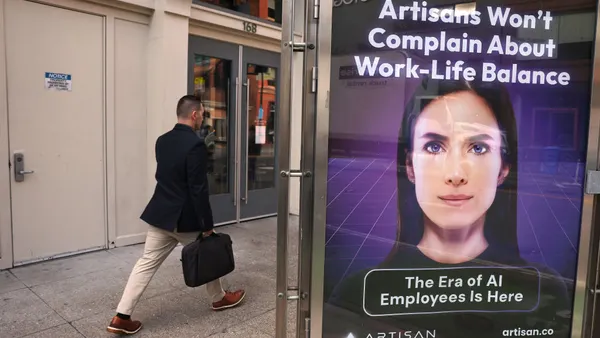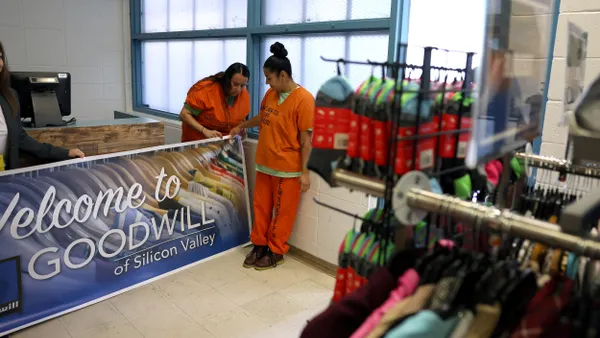Dive Brief:
- The majority of young U.S. and U.K. workers surveyed by public relations firm Liberty Communications and market research company Opinium said the pandemic has changed what they want out of their careers, even as many have encountered difficulties landing jobs in the past year.
- About one-third of those who cited changing career expectations said that they wanted their careers to enable them to make the most of their life outside of work. But 46% of respondents who had jobs felt their roles were not taking them into their desired career direction, and 35% felt it was unlikely they would end up in their desired role. The firms polled 1,000 U.S. and U.K. millennial and Generation Z members in January.
- The vast majority of American respondents tended to cite challenges when applying for jobs, including highly competitive hiring processes and connection difficulties during virtual interviews.
Dive Insight:
It is no surprise that younger job candidates reported difficulties finding work during the pandemic. In the U.S., unemployment continues to trend higher for the youngest job seekers. Workers ages 20 to 24, for example, had a seasonally adjusted unemployment rate of 9.7% in January, compared to a 5.7% rate for those ages 25 and older.
The lack of entry-level opportunities is impacting both sides of the recruiting equation. A 2020 Glassdoor Economic Research study found the number of available "entry level" or "new grad" technology industry positions decreased 68% year-over-year. That led new graduates to apply to more senior tech roles, Glassdoor said.
For recruiters, the state of the job market may necessitate a shift in hiring practices, sources previously told HR Dive. For example, employers could change the items they look for when evaluating younger job candidates for important skills and characteristics. Candidates who were unable to demonstrate leadership skills via on-campus activities due to school closures, for example, may have been able to do so in other ways, such as helping younger siblings with homework. Others may have sought to improve their skills by taking online classes.
Employers largely shifted hiring to virtual formats last year. Many also saw an uptick in mobile-based job applications. Appcasts' recent analysis of 2020 job applications found mobile made up roughly 61% of all applications submitted.
The survey findings from Opinium and Liberty Communications may point to another trend, however. "The research shows that COVID-19 has drastically changed the landscape for young people and that money is no longer the main factor for incoming professionals across the UK and US," James Endersby, chief executive at Opinium, said in an email statement.
This is not the first time research found evidence that growth opportunities may edge out pay for job seekers. In 2019, an online poll by Jobvite found 61% of full-time, part-time and job-hunting U.S. respondents looked for career development opportunities when job searching. Jobvite also found that younger workers in particular were more likely to prefer career development to higher pay.













